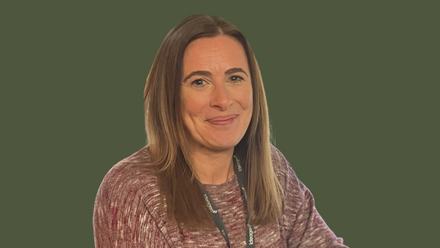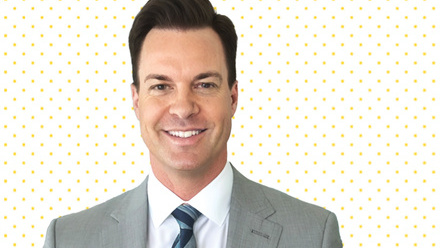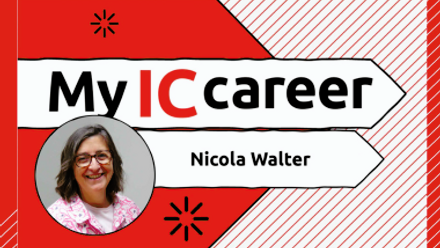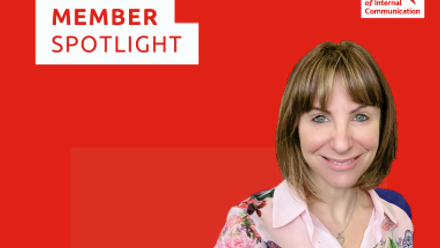‘Seeing human potential wasted at work has always bugged me’
After graduating from Cambridge University in 1975, Jenny Davenport set about finding a job. The university had a career service dedicated to helping women find placements, so that is where she turned to.
When asked what she was interested in, Jenny knew the answer right away: “Previous temp jobs had exposed me to lots of human potential just going to waste in the workplace, and it really bugged,” she says. “People’s time and intelligence didn’t seem to be well used, and there seemed to be no effort to engage with employees to address issues at all.”
It was recommended she work for The Industrial Society – an employment training and advisory charity – and so, that’s what she did. It was in this role that she was introduced to employee comms, sparking her love for the industry.
What did you enjoy about working at The Industrial Society?
It was a wonderful organisation, set up to promote good employee relations and harness people’s potential at work. Even in those days it was forward thinking. I was placed in the communication department, and the main thing we promoted was team briefings.
It was my job to visit senior people from different companies and encourage them to start communicating regularly with their employees. It was a revolutionary idea at the time, and most of the people I spoke to didn’t want to! They felt that because they knew the relevant union official by name, they didn’t need to bother communicating with employees. They also thought people were only interested in their pay packets and had no interest in speaking to management.
It was an uphill struggle to convince people otherwise; but over time we were able to build up case studies that showed how improving employee relations could increase productivity, and that got employers’ attention.
When did you notice people recognising internal communication as its own distinct field?
Well, it didn’t exist at all when I started work. There have always been in-house journalist types who put together communication materials for employees, but I don’t think they really saw themselves as having a strategic role in the organisation.
In 1993 I was instrumental in setting up the Employee Communication Association (which was one of the organisations that later merged to become the IoIC), and that was seen to be filling a gap. The aim was to be more strategic in what and how people communicated internally, and whilst it started as a very small group, the sentiment must have been strong enough that we felt the need to establish a professional organisation around it.
What are the key ways you think internal comms has changed over the course of your career?
A major change is that you don’t get senior people saying they don’t care about engaging with their employees anymore! Whether it’s genuine or not is another question, but the outward attitude has completely changed. The recognition of internal communication’s value has grown greatly too, which has been very nice to see.
Another change is the explosion of digital media. When I first started out, we were largely limited to noticeboards, print materials and physical events. This change, however, has exacerbated one of the challenges that has always been present within internal communication, which is fighting for employees’ attention. There’s lots of clutter to contend with, and just getting space in people’s brains is a challenge.
What direction do you think internal comms is heading in?
It’s getting more powerful. And the more businesses fight for talent, the more they will value listening to their people. The barrier between external and internal is also continuing to break down – largely thanks to social media and the push for transparency – and internal comms will play a pivotal role to play in managing this.
I think something internal communicators need to be mindful of is how much more difficult it will be to create a sense of togetherness for employees working from home, however. Often when we go into the workplace, we create our own sort of life there, but without that opportunity, people can feel less connected to the organisation.
What can internal communicators do to prepare for changes and challenges ahead, and how can IoIC support them?
Keep educating yourself – nothing stays still. The IoIC plays a vital role in providing resources, training and courses (such as the Masters) and access to knowledge, so make the most of what’s available. Internal comms can be isolating, so you should also try and build a network outside of your organisation, especially if you work as a team of one.
To ensure you’re supporting your organisation as best you can, you need to keep learning about the business too. Make an effort to understand what it is that keeps your senior leaders awake at night and what the business needs to get right in order to thrive.
How have you supported the IoIC over the years?
Setting up the Employee Communication Association had a big influence on the IoIC’s future establishment, so I view that as very important. Through the association we also set up the Postgraduate Diploma, as one of our aims was to introduce professional qualifications to the industry. They didn’t exist at the time, so lots of research was done to establish what would be most useful to people.
I consider setting up the diploma as my biggest career achievement, as I spearheaded the project. Pat Hedges, the previous course director, did most of the work with Kingston University to set it up. And then Liz Cochrane, who was also involved from the beginning, had a big impact too, especially when she took over as course director.
I taught the course for many years, including when we relaunched it as the Masters in Internal Communication with Solent University. It’s a role I really enjoyed doing, as I learned a lot from the students every year. I only recently gave up running the modules, but I still do some lecturing and marking. I’m pleased to do it, as I find it fascinating.
What are three words you’d use to sum up your career?
Everchanging. Stimulating. Busy.
What are you looking forward to in retirement?
I’m looking forward to having time for myself. I plan to travel, read and do lots of needlework. I’ll also be doing an art history course and my biology GCSE! So, my retirement will involve lots of learning.
I also I do a variety of volunteer activities, including teaching dyslexic children to read. And of course, I will always remain interested in matters related to internal comms and people in the workplace, and I’ll be keeping my eye out for industry updates.






